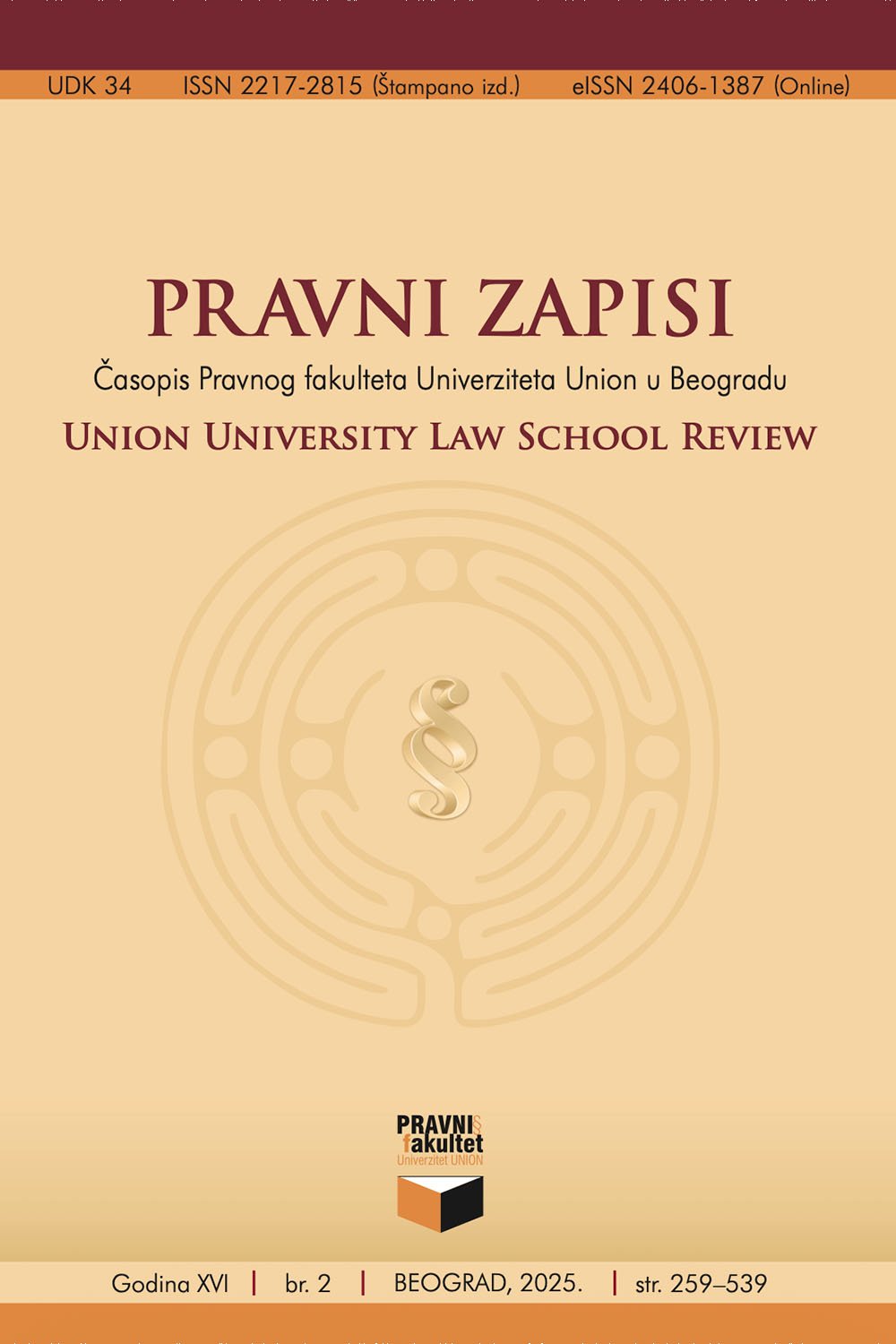PRAVNI ZAPISI • Year XV • No. 2 • pp. 394–429
LEGAL CONSEQUENCES OF SPECIAL TAX REGIMES FOR INDIVIDUAL ENTREPRENEURS IN POST-TRANSITION ECONOMIES

English
Vladimir Tiutiuriukov
Assistant Professor, Union University Law School Belgrade
e-mail: vladimir.tiutiuriukov@pravnifakultet.edu.rs
ORCID ID: 0000-0003-3772-4689
Pravni zapisi, No. 2/2024, pp. 394-429
Original Scientific Article
DOI: 10.5937/pravzap15-53592
KEY WORDS
Special Tax Regime, Lump sum Tax, Imputed Income Tax, Personal Taxation, Individual Entrepreneurs, Self-employed.
ABSTRACT
This paper provides a comparative legal analysis of the practice of four post-transition economies (Czechia, Kazakhstan, Russia, and Serbia) with special tax regimes for individual entrepreneurs from 1990s till now. We analyze the eligibility criteria and main elements of each special tax regime – whether based on lumpsum tax, on taxation of imputed income, or on taxation of actual income – on a country-by-country basis, for both existing and abolished regimes. The legal implications are also explored. In the conclusion, the paper compares and contrasts their features to identify the advantages (such as consistency of tax system, decrease in compliance burden, automatic adjustment for inflation) and deficiencies (taxpayer uncertainty, susceptibility to abuse of law and tax avoidance).

